Is your car shaking or vibrating when you start it, only to run smoothly afterward? If so, you’re not alone. It’s quite a common occurrence.
Regardless, of which car you drive and the ten possible causes below. To get straight to it, the most common cause of the car shaking when starting is actually a worn motor mount. This means the engine can shake and movetoo much when starting.
10 Reasons Why Your Car Shakes When Starting Then Runs Fine
Before you read on further, it is worth us pointing out that although there are a lot of different parts to a car that can cause the vehicle to shake when starting, they aren’t all that common, and the most common is a worn motor mount.
1. Engine misfire
An engine misfire refers to a situation where one or more cylinders in the engine fail to ignite the fuel, resulting in an incomplete combustion cycle. This is evident to the driver as it usually means the check engine light will illuminate, and the engine will run really rough.
In some situations, the misfire can only happen briefly when starting the engine but then run absolutely fine once running. When this happens, the engine management light probably won’t illuminate, as by the time the car thinks there may be an issue, the issue is resolved, and the vehicle is running as it should. The usual causes of a misfire problem are:
- Spark plug issues
- Ignition coil faulty
- An electronic sensor malfunctioning
- Fuel delivery problems
- Ignition leads faulty
2. Clogged fuel injectors
When fuel injectors become clogged, they will not deliver the right amount of fuel or the correct spray pattern into the cylinder. Either of the issues will result in an incomplete combustion process in one or more cylinders, which can cause a misfire. Usually, when a car has a clogged fuel injector, the misfire is apparent when the vehicle runs and gets worse the faster you drive. The misfire will rarely go away on its own. However, there is the odd occasion when this misfire can disappear soon after starting the engine.
When starting a cold engine, the ECU uses a pre-programmed fuel map and sensor inputs to determine the fuel delivery. If a fuel injector is clogged, it will cause an imbalance in the air-fuel mixture leading to a misfire during start-up. This can result in the engine shaking, rough idling, or even stalling during start-up.
However, a few seconds after starting a car, it starts to warm, and the engine management (ECU) adjusts the fuel delivery based on real-time data. So it may compensate for the clogged fuel injector by increasing the amount of fuel in the affected cylinder. This can help overcome the fuel delivery issue and allow the engine to run more smoothly, masking the misfire once the car is running.
3. Spark plug problems
Spark plugs are responsible for igniting the air-fuel mixture sucked into the cylinder. When spark plugs are worn (the tips eroded) or fouled (contaminated) it can contribute to a misfire when running.
A fouled spark plug can cause the engine to shake when starting but then run fine. Because a fouled spark plug is most commonly caused by oil which stops the spark plug, delivering a strong spark. Once the engine is running the heat generated inside the engine burns the oil contamination off the spark plug. Meaning the car will now run smoothly. However, because there is probably a cause for the oil getting into the cylinder when the engine is cold again, the oil will foul the spark plug again, and the same thing will happen again when starting the car again next time.
4. Low fuel pressure
Without the correct fuel delivery, the engine will not run right. The fuel is kept under a specific pressure to ensure the correct amount is squirted into the engine. If the incorrect amount of fuel is injected into the engine, it will run rough.
This can cause the car to shake on start-up, as the engine requires sufficient fuel to initiate the first combustion cycle. If the fuel pressure is too low, it may result in an insufficient amount of fuel being delivered and a lean fuel-air mixture. A lean fuel mixture will cause a misfire for a brief moment when the engine is initially started, which is why you get the initial shake from the engine.
Once the engine is running, the fuel pressure will stabilize as the engine control unit will use real-time data and sensors to realize it needs to pump in more fuel to counteract the pressure loss. The engine will then run smoothly. A loss of fuel pressure can be caused by several different issues, including:
- Faulty fuel pump
- Clogged fuel filter
- A fuel leak
- Faulty fuel pressure regulator
5. Worn motor mounts
Engine mounts have two jobs, one is to hold the motor and transmission inside the engine compartment. The other is to absorb movements and vibrations caused by the engine and gearbox when driving. Worn motor mounts are the most common cause of a car shaking on start-up; they can also cause the vehicle to shake when turning off.
When the motor mounts are worn, the engine will rock excessively, which can be felt throughout the car. The initial jolt and movement of the crankshaft starting to turn cause the engine to rock more on start-up. Once the engine is running apart from changing gears or hard acceleration, the engine mounts aren’t put under stress, so the engine may not shake as much, especially if idling.
6. Starter motor failed
The starter motor does precisely what it’s called. Its job is to draw power from the battery and spin the flywheel to start the engine. Because starter motors aren’t involved in the combustion process, they rarely cause a strong shake when problematic instead you may feel a vibration.
A starter motor not fully engaged to the flywheel may mean the car will struggle to start, which means the vehicle will shake until it runs. However, once running, it will be completely smooth. Also, if the teeth on the starter motor are worn, the starter can jump on the flywheel, which will also cause the engine to shake when trying to start.
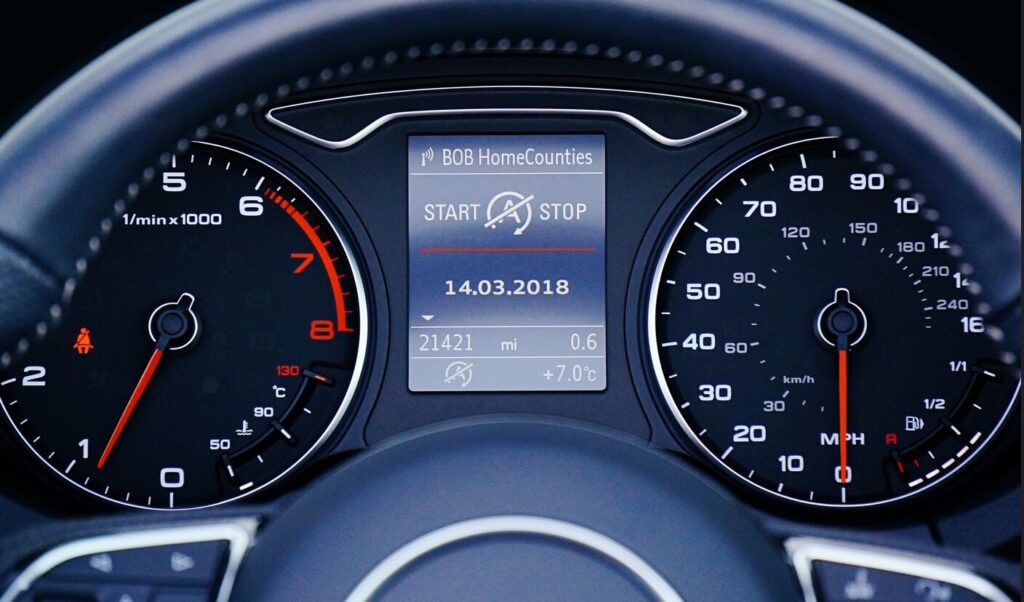
7. Loose components
A loose component from anything related to the engine may mean there is excessive movement from a problematic part when starting the engine. It may just be a simple vibration from the loose component which can be felt. A loose component may come from one of the following problems,
- A loose exhaust system
- Rattling heat shield
- Alternator pulley loose
- Tensioner pulley loose
- Engine cover not secured
8. Low oil
Although low oil may cause a problem, it won’t be the actual reason for the engine shaking when starting the car; there is a bit more on that below. Oil lubricates rotating engine components and contributes to sealing the piston in the cylinder.
Low or no oil in an engine will mean that without proper lubrication, friction or contact between metal components may cause a vibration when starting. Also, without a sealed combustion chamber, the engine will misfire. This may only briefly be noticed on start-up if the oil level is low because the small amount will begin to circulate once running. It may be enough to protect the engine enough to stop shaking or vibrations.
9. Engine damaged
As indicated above, running an engine with no or low oil might cause engine damage. If damage occurs, the rotating components may be out of sync or off balance. It will cause vibration or shaking in the engine.
It may be that the rough running is only felt on start-up; however, with this type of issue, the faster the engine goes, the worse the vibrations and shaking get. However, it is still worth noting that the transition of a damaged engine component from stationary to moving may be felt significantly worse than when running.
10. Timing out
The engine’s timing refers to synchronizing the cams with the crankshaft to keep everything working in a specific order on time. The order in which the combustion cycle work is first allowing air and fuel in, the pistons squeezing the mixture, the spark plugs ignite the mix, and then fumes are forced out of the exhaust (AKA suck, squeeze, bang, blow). If any of them happen too early or too late, it can cause a cylinder misfire or poor running.
The cambelt or timing chain is responsible for keeping the timing in order/ The belt/chain rotates both the crankshaft and camshaft together simultaneously. If either is worn or the pulley fails, the timing will be slightly off, so you can get a vibration or rough running engine on start-up.
How to Diagnose the Cause of a Car Shaking When Starting Up
Diagnosing which component is at fault is not as tricky as you might think. Just because worn motor mounts are so common, I would also check them first. Open the hood and try to move the engine. It shouldn’t move too much. If that doesn’t highlight a problem, follow the list below until you find the item needing repair.
- Take note of when the shaking occurs, such as during cold starts, hot starts, or under specific conditions. Also, road tests the car to look for other associated symptoms, such as unusual noises or warning lights.
- Use an OBD-II (On-Board Diagnostics) scanner to check for any stored trouble code; a code can be stored without the engine management light illuminating. These codes can provide valuable information about potential issues with components such as the ignition system or fuel system.
- Perform a visual inspection of the engine and related components. Look for any signs of wear, damage, or loose parts. This may include checking spark plugs, ignition coils, fuel injectors, belts, and hoses.
- Next would include a compression test to check the condition of the engine cylinders or a fuel pressure test to assess the fuel system’s performance. Unfortunately, without specialist equipment, it may not be possible to carry these out at home and may require you to take the car into a garage for a mechanic to carry it out.
- Lastly, before you may have to consider taking the car to a mechanic to find the fault, I would only do one more thing if I were in your position. I would check if any repairs were recently carried out to the vehicle, which may highlight something that needs the repair checking if it was carried out correctly.
If none of the above highlights and issue, then taking the car to a mechanic for them to investigate is the only thing that can be done.
Conclusion
A car shaking when starting but running fine can usually be traced to a worn motor or transmission mount. But if that’s not it, many other car parts can cause this fault. It’s worth noting that just because the shaking is only felt at start-up, it may still be there when the engine is running it just may be being masked. Either way, most of the faults that cause this type of issue need to be repaired asap; they can all cause further complications or more damage if ignored.
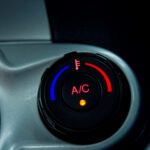

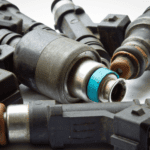
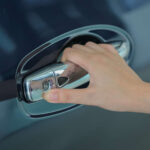
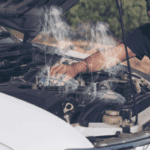
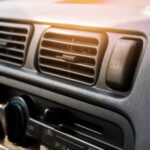
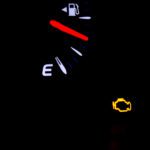
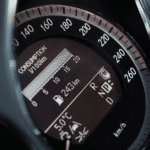
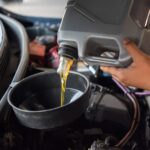
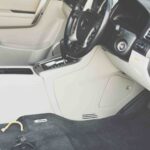
I bought a new range rover 2016 super charger 3.0L.
When start it shake for 5mins and becomes normal, also when it hot it doesn’t start until its cool down…
What is the cause of this problem?
Thanks for your comment. This is not as easy as saying it’s x or y causing the problem because you have two separate faults, although they are probably linked. My first thought would be to check what’s going on with the fuel supply. Unfortunately, you will probably need to get the car onto a diagnostic tool to address these faults on that car.
Sorry I can’t be of more help.
Tommy
carsneedcare.com